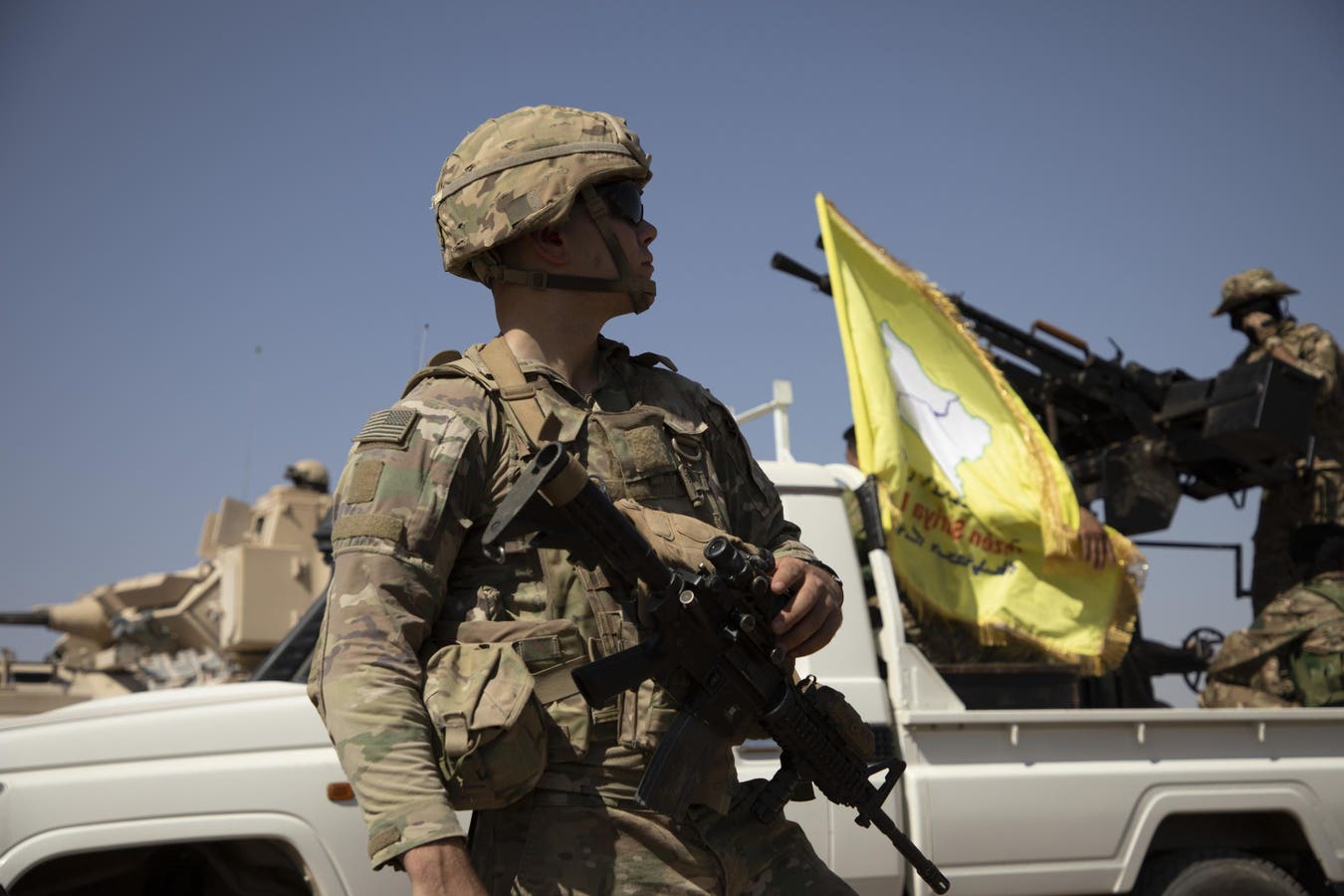Kurdish security forces allied with the United States military against the Islamic State in Syria and Iraq have faced unprecedented drone attacks in recent months.
In the latest such attack, a drone targeted a base in Syria’s eastern Deir ez-Zour province controlled by the Kurdish-led Syrian Democratic Forces on Sunday, killing six of its forces. The base, where SDF commandos undergo training, also hosts U.S troops. There were no American casualties in the strike.
The Iran-backed ‘Islamic Resistance in Iraq’ umbrella group promptly claimed responsibility. The SDF also blamed the attack on “Iran-backed militias” following its investigation.
The SDF controls large swathes of Syria that are governed by the civilian Democratic Autonomous Administration of North and East Syria. The SDF and the DAANES are already enduring a ferocious Turkish drone campaign against SDF personnel and critical civilian infrastructure, causing severe disruptions in electricity and water supplies to millions of civilians.
Turkey makes no distinction between the SDF — whose main component is the Syrian Kurdish People’s Protection Units, the YPG — and its arch-foe, the Kurdistan Workers’ Party, PKK.
The Iran-backed militias operating in Iraq and Syria are hostile to the SDF since the group cooperates with the United States in Syria.
The SDF has repeatedly warned that attacks against it risk aiding Islamic State remnants and potentially paving the way for the group’s resurgence. Tens of thousands of Islamic State militants are languishing in detention centers and prisons, many makeshift, throughout the DAANES regions. These militants have attempted well-planned, coordinated breakouts in the past, most notably in Hasakah in January 2022.
There have also been an increasing number of disturbing drone attacks targeting Kurdish Peshmerga forces in neighboring Iraqi Kurdistan.
For years, the Iran-backed militias in Iraq have targeted U.S. troops in Iraqi Kurdistan, mainly at the troop base on the grounds of Erbil International Airport, using rockets and drones.
In a wholly unprecedented move, two explosive-laden militia drones directly targeted a Peshmerga base in the Iraqi Kurdish capital on Dec. 30. While that attack did not kill anybody, it showed these group’s willingness to also attack the Peshmerga, a move Kurdish officials dubbed a “dangerous development.” (That attack was, of course, dwarfed by Iran’s Jan. 15 ballistic missile attack on Erbil that killed a civilian Kurdish businessman and members of his family.)
The Dec. 30 attack wasn’t the first time Peshmerga forces were directly targeted by drones in 2023.
Turkey has bombed suspected PKK hideouts and fighters in the mountains of Iraqi Kurdistan for decades. Beginning in 2018, Ankara also began carrying out targeted assassinations against the group’s leadership using armed drones with precision-guided munitions. It did not target Peshmerga or other armed forces affiliated with Iraqi Kurdistan’s two leading parties, the Kurdistan Democratic Party and the Patriotic Union of Kurdistan. (However, it did accidentally kill five KDP Peshmerga troops in an April 2017 strike on Sinjar at a time when the Peshmerga and the PKK were contesting control over the Yezidi-majority region.)
That dramatically changed on Sept. 18 when a drone attacked Arbat airport near the Iraqi Kurdish city of Sulaimani, killing three members of the PUK’s Counter-Terrorism Group. While Turkey did not claim responsibility, the Iraqi military confirmed the drone entered Iraqi airspace from Turkey. Ankara also claimed the CTG was training with the YPG at the base in an apparent attempt to justify the attack.
Turkey has long accused the PUK of aiding and abetting the PKK and YPG. As recently as Sunday, Turkish Foreign Minister Hakan Fidan warned Turkey might take “further actions” against the PUK, echoing a similar warning he made in January.
Turkey closed its airspace to Sulaimani International Airport on Apr. 3 and is widely believed to have carried out a drone strike targeting a convoy near the perimeter of that airport on Apr. 7. The convoy in that drone’s crosshairs was carrying SDF commander-in-chief Mazlum Kobane and three U.S. military personnel.
While nobody was killed or injured in that attack, it still demonstrated Turkey’s willingness to launch attacks inside Sulaimani city, the PUK’s stronghold.
When assessed together, these attacks show a worrying pattern in which regional powers and their proxies are showing no qualms about targeting U.S.-allied Kurdish security forces. If these attacks continue, they will further destabilize an already notoriously volatile region and empower terrorists hellbent on carrying out atrocities around the world.
Read the full article here





